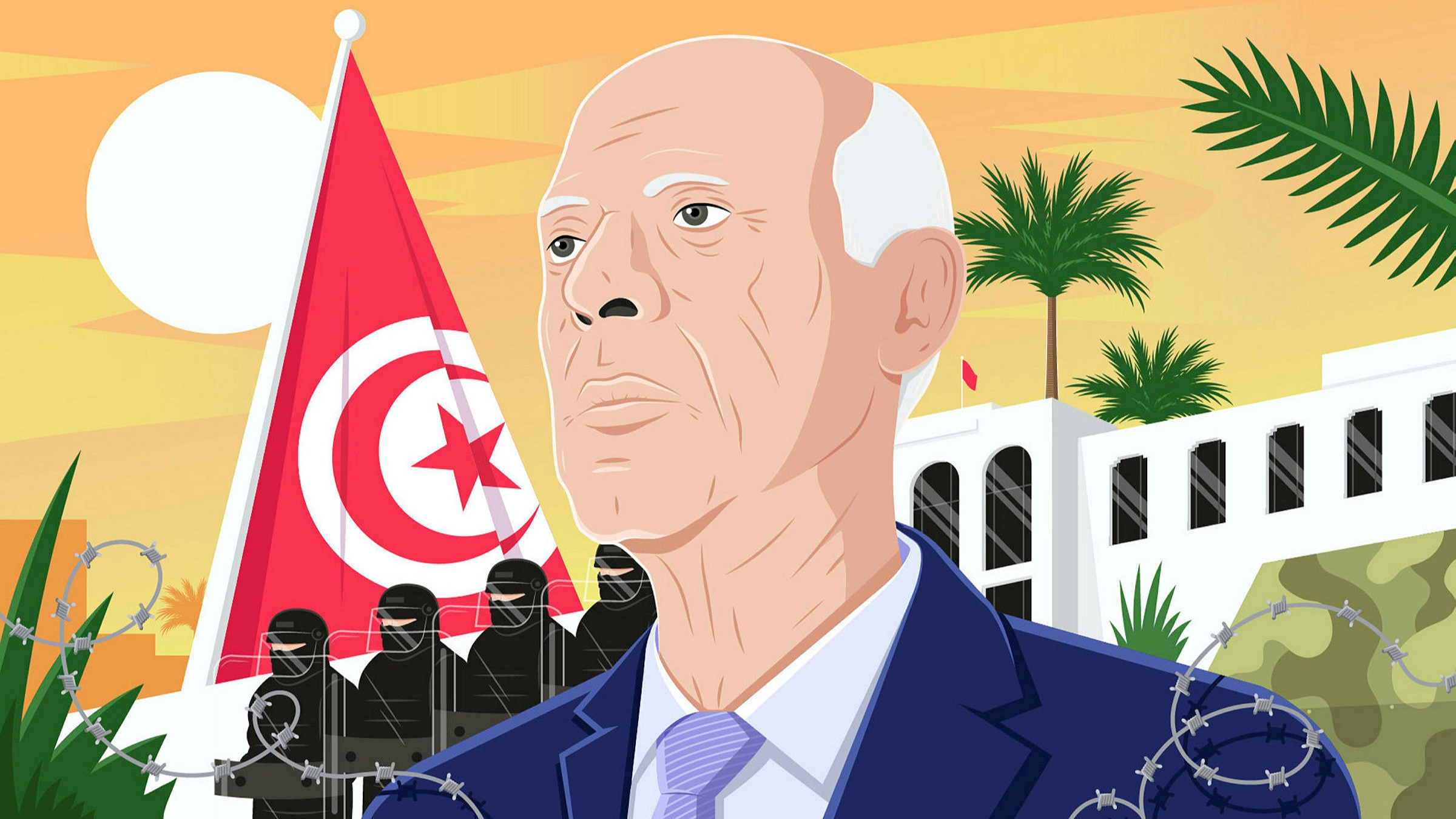
Tunisia is witnessing a troubling escalation in authoritarian practices,marked by hunger strikes,expedited trials,and a crackdown on civil society,according to repeated alerts from human rights organizations and independent media.
Despite mounting concerns,President Kaïs Saïed’s administration appears increasingly unresponsive to criticism,deepening fears of democratic backsliding.
The suspension of the Tunis office of the World Organization Against Torture (OMCT) on November 5,2025,for a period of 30 days,has sent shockwaves through Tunisia’s human rights community. Amnesty International and several local NGOs condemned the move as a “flagrant violation of the freedom of association,” describing it as part of a broader pattern of repression targeting dissenting voices.
Among the most symbolic acts of protest is the hunger strike launched by constitutional law expert and political detainee Jawhar Ben Mbarek. Refusing food,water,and medication,Ben Mbarek accused President Saïed of silencing him,declaring in a letter from prison: “I will live free… or die free.”
His strike underscores the intensifying standoff between political prisoners and a government increasingly intolerant of opposition.
The President has also been criticized for using the judiciary to silence opponents. The conviction of lawyer and former judge Ahmed Sawab to five years in prison and three years of probation following a seven-minute hearing has sparked outrage within the legal community.
“What is taught in lecture halls no longer resembles what happens in courtrooms,” wrote lawyer Sami Ben Ghazi in a public post,reflecting widespread disillusionment with the justice system.
Further allegations of abuse have emerged in connection with the so-called “conspiracy case.” Elias Chawachi,son of opposition figure Ghazi Chawachi,described violent treatment of detainees,including beatings and forced transfers carried out without notifying families or legal representatives. These accounts,widely circulated in the press,have heightened concerns over the erosion of judicial independence and due process.
The repression has extended beyond political circles. Several civil society organizations—including the Tunisian Forum for Economic and Social Rights (FTDES),the Association of Democratic Women,and independent investigative outlet Nawaat—have faced suspensions or restrictions. The National Union of Tunisian Journalists (SNJT) denounced what it called the “weaponization of administrative,judicial,and security tools to silence free voices.”
A petition signed by prominent national figures calls for the reversal of these “unjust” decisions and an end to what they describe as a campaign of administrative and legal intimidation. Observers warn that the next target may be the powerful Tunisian General Labor Union (UGTT),a move that could trigger widespread unrest in an already fragile society.
Meanwhile,social discontent continues to mount. In Gabès,more than 100,000 demonstrators recently took to the streets to protest industrial pollution,reflecting broader frustrations over deteriorating public services,a collapsing healthcare system,and declining purchasing power.
Tunisia’s economic crisis is deepening,with shortages of basic goods,rising debt,and institutional paralysis fueling public anger. Arbitrary arrests of business figures,often without clear evidence,have further eroded trust in state institutions.
United News - unews.co.za